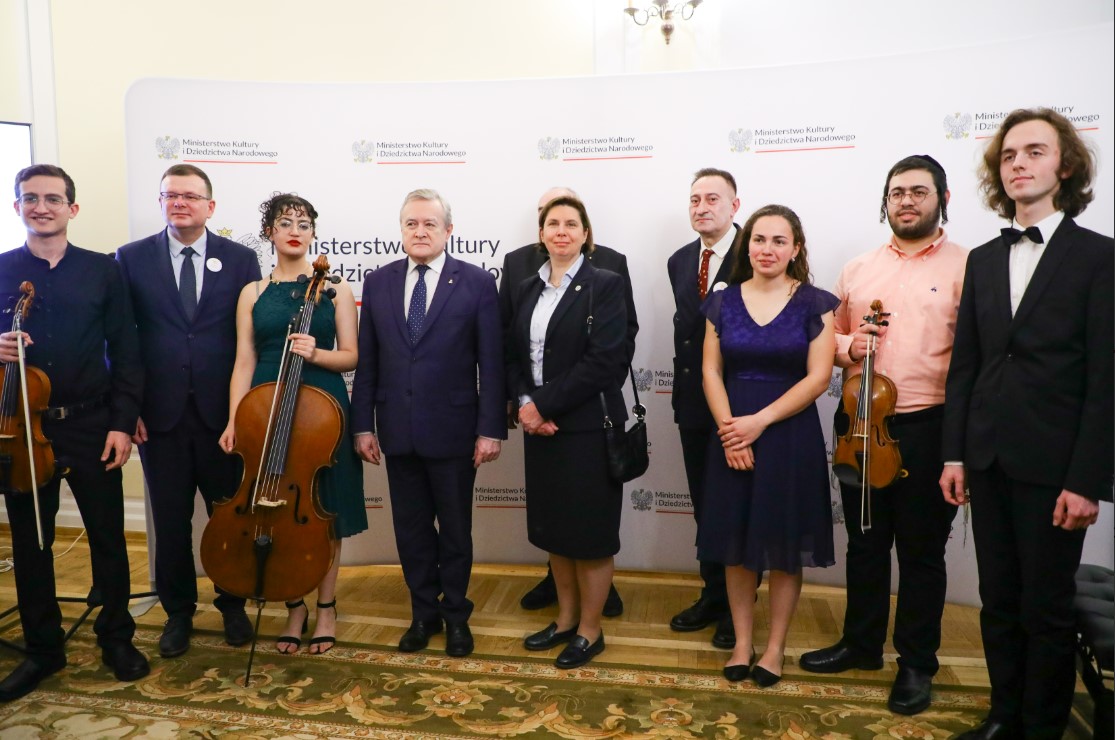“The Warsaw Ghetto Uprising was the largest armed Jewish uprising during World War II, as well as the first metropolitan uprising in occupied Europe – a heroic and tragic uprising that became a symbol of the resistance of Polish Jews against the Holocaust forever”, said Deputy Prime Minister, Minister of Culture and National Heritage Prof. Piotr Gliński during a conference announcing the celebrations of the 80th anniversary of the Warsaw Ghetto Uprising.
The commemorations are coordinated by the Warsaw Ghetto Museum in cooperation with the POLIN Museum of the History of Polish Jews, the Social and Cultural Society of Jews in Poland and the Emanuel Ringelblum Jewish Historical Institute.
The head of the Ministry of Culture indicated that the main anniversary ceremonies, organised by the Presidential Chancellery, will take place on 19 April in front of the monument to the Warsaw Ghetto Fighters.
On the same day, a ceremonial concert by a Polish-Israeli symphony orchestra is scheduled to take place at the Grand Theatre – National Opera. The orchestra, made up of young musicians from the Jerusalem Academy of Music and Dance and the Frederic Chopin University of Music, will be conducted by Anna Sułkowska-Migoń.
Exhibitions, theatre performances, musical events, meetings, webinars, study sessions, educational walks and other scientific, educational and popularisation initiatives commemorating the Warsaw Ghetto Uprising are also organised by other institutions. They include: The Museum of the History of Polish Jews POLIN, the Social and Cultural Society of Jews in Poland, the Emanuel Ringelblum Jewish Historical Institute, the European Network Remembrance and Solidarity, the Jewish Theatre and the Institute of National Remembrance, but also The Museum of the Second World War, the Treblinka Museum, the Warsaw Museum, the Warsaw Uprising Museum, the Adam Mickiewicz Institute, the National Cultural Centre or the Musical Theatre in Poznań.
Adrian Andrzejewski





